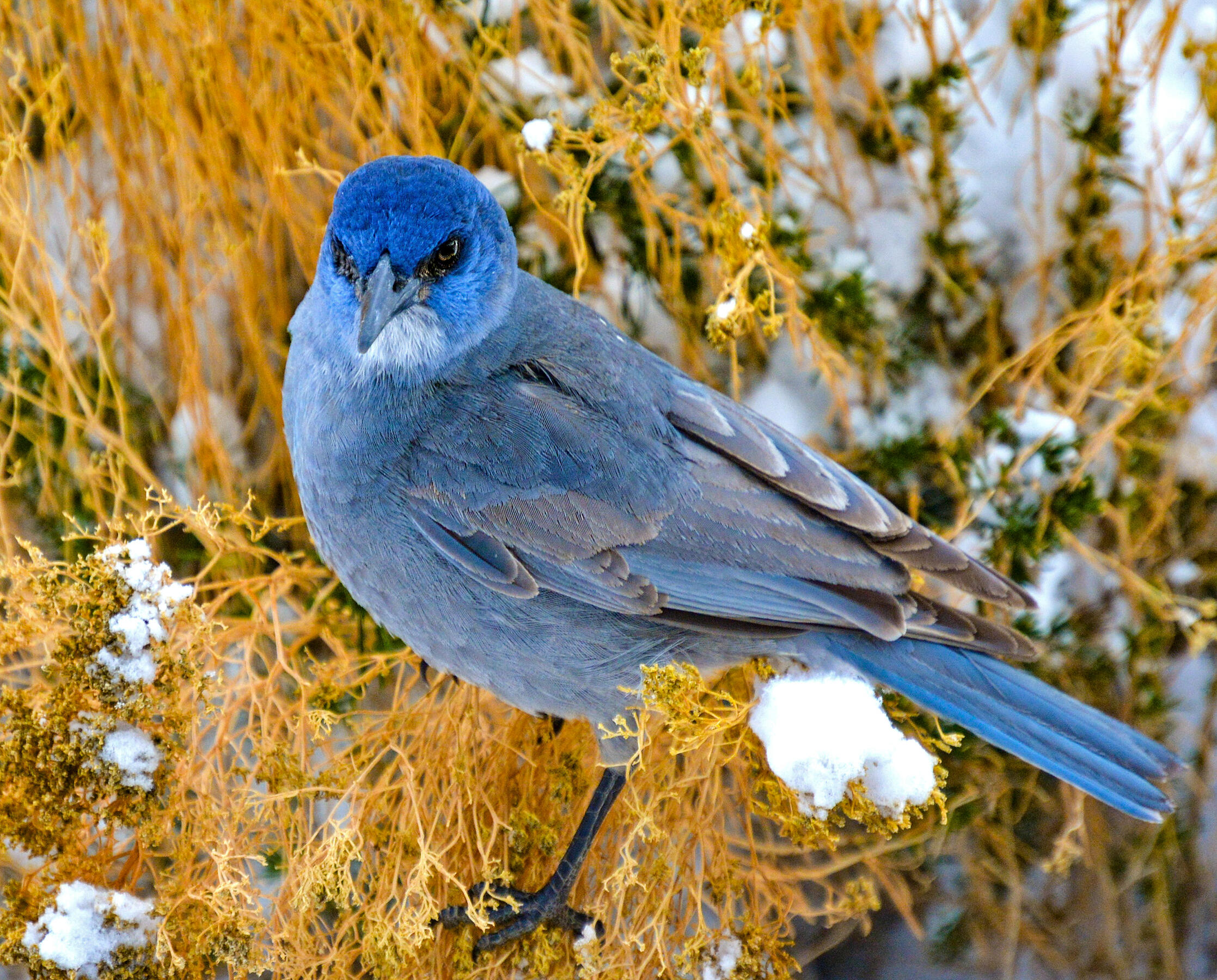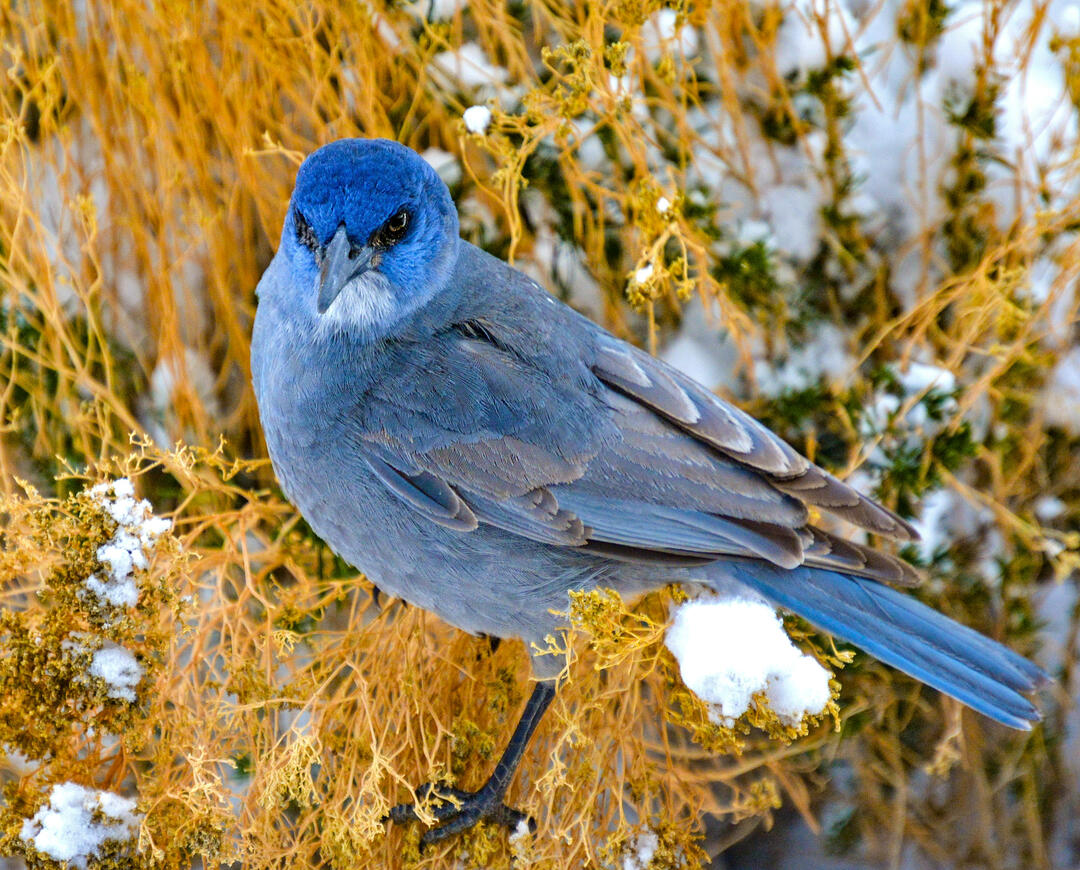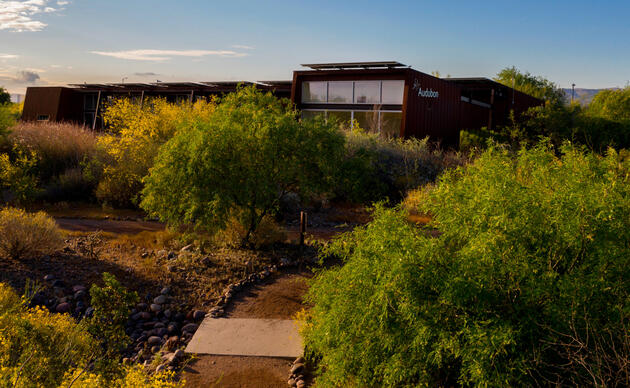Wow, what strange times we live in.
At this point, saying the current moment is “unprecedented” seems to be a bit of an understatement. Children have been sent home from school; restaurants, movie theatres and gyms have stopped operating; and the most basic ways that we move through society and interact with our fellow humans have been reexamined and deemed unsafe. No, unprecedented does not come close to describing this current moment of social upheaval.
At Audubon New Mexico the health and well-being of our staff and members is always our top priority. We’re taking this seriously by doing our part to manage this public health crisis by temporarily closing the public buildings at our Randall Davey Audubon Center, cancelling all public events and in-person gatherings, and asking staff to work from home until further notice.
But even in times like these, we continue to work to protect the birds, wildlife, and wild places of New Mexico and you can too. As we are feeling isolated and powerless, maybe a little social activism is the perfect thing to practice along with our social distancing.
Here’s a short list of some important issues and actions you can take right now to make this planet a better place for birds and all living things.
Defend America’s Most Important Bird Law – We have lost 53 percent of North American grassland birds like Western Meadowlarks since 1970.
The Migratory Bird Treaty Act (MBTA) is our most important bird protection law. But in 2017, the Department of the Interior issued a policy to give a free pass for industries to kill birds. For the first time, companies are off the hook from having to protect birds from hazards such as open oil pits and power lines, and will no longer be held accountable when their actions result in bird deaths. Now leaders in Congress have introduced the Migratory Bird Protection Act to restore its protections and safeguard the law for the future.
Take action today by asking your U.S. Representative to support and cosponsor the Migratory Bird Protection Act.
Tell Congress to Pass the Migratory Bird Protection Act
Further Reading: The Trump administration has officially clipped the wings of the Migratory Bird Treaty Act
Trump Administration moves to relax rules against killing birds
Protest Oil and Gas Leasing on our Most Sensitive Lands – The Carlsbad Field Office of the Bureau of Land Management (BLM) in southeast New Mexico continues to lease new parcels of public land for oil and gas development in highly sensitive areas.
The office is proposing to lease 10 new parcels totaling over 2800 acres in its August lease sale, and public scoping comments are due by this Friday, March 20th. Two parcels in the sale, parcel 6734 and 6735, overlap a proposed Area of Critical Environmental Concern (ACEC). The proposed Chihuahuan Desert Rivers ACEC, totaling approximately 103,800 acres along the Texas border includes the riparian corridors of the Delaware, Pecos, and Black rivers. It was nominated because of the scarcity of water in desert ecosystems, and because of its outstanding biodiversity, including listed state species, BLM sensitive species, and possibly a federally listed species, the Texas Hornshell Mussel. The Delaware River has been designated an Important Bird Area by the Audubon Society because of its importance as a resting stop for many species of migrating birds.
We believe all of these parcels should be deferred, preferably indefinitely, but at least until BLM's plan is completed and BLM consults with the New Mexico Department of Game and Fish. If you’re interested in commenting click on the link below and you will see a button which says "comment on document". Follow the instructions to submit a comment via BLM's e-planning page. Make sure you hit the submit button at the end of the process.
Submit a Comment to the BLM Protesting Lease Sales in ACEC
Further Reading: Balancing energy leases and vital wildlife habitat
Demandi Sound Management of our Pinyon-Juniper Woodlands Pinyon Jay populations have declined by over 85% across its range since 1970. The reasons for this decline are complex but we know one major driver is the loss of Pinyon Pine trees from our southwestern forests.
Now the BLM has announced a proposal to expedite review and approval of projects across the west that will remove thousands of acres of Pinyon Pine and Juniper trees to make way for the growth of sagebrush, by establishing a new “categorical exclusion” for the trees under the National Environmental Policy Act. This could result in up to 10,000 acres of trees being removed in a single project without so much as a survey to determine if Pinyon Jays are using the area.
Audubon New Mexico believes that issuing a “categorical exclusion” for projects that remove Pinyon Pine would put already at-risk Pinyon Jay populations in further peril by not allowing sound science to guide management of these woodlands. You can provide comment by clicking on the link below and following the posted instructions.
Tell the BLM that Sound Science Should Guide Pinyon Juniper Habitat Management
Further Reading: BLM fast tracks plan to rip up thousands of trees
BLM may skip 'needless' NEPA reviews for sagebrush projects
While this global pandemic has brought much of our society to a screeching halt, the threats to our natural world remain. The burning of fossil fuels, destruction of habitat, and overall decline of bird populations need our time and attention, both of which just became much more available. So instead of tidying up the house for the umpteenth time or bingeing that show that has never quite made it to the top of your list, let’s all put some of our surplus time and energy into making a difference for birds, wildlife, and the healthy environment that they need by getting active and making our voices heard.






